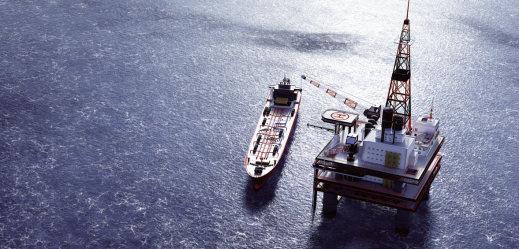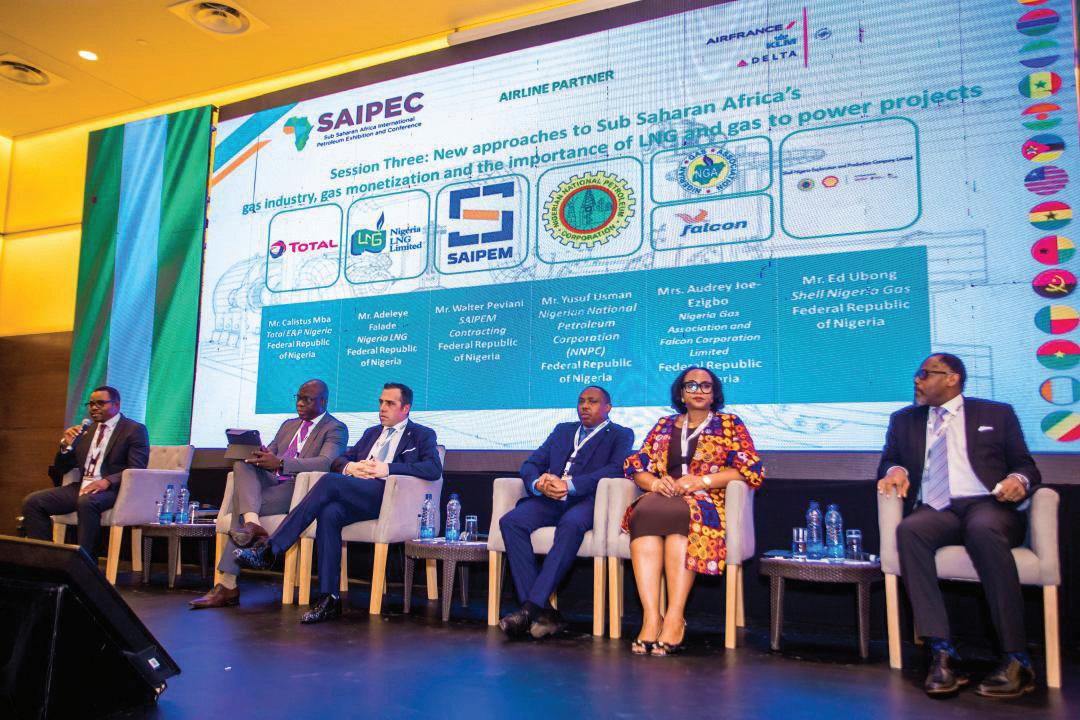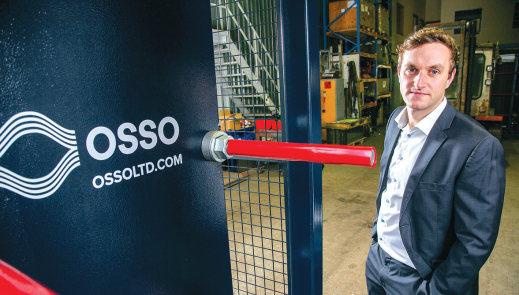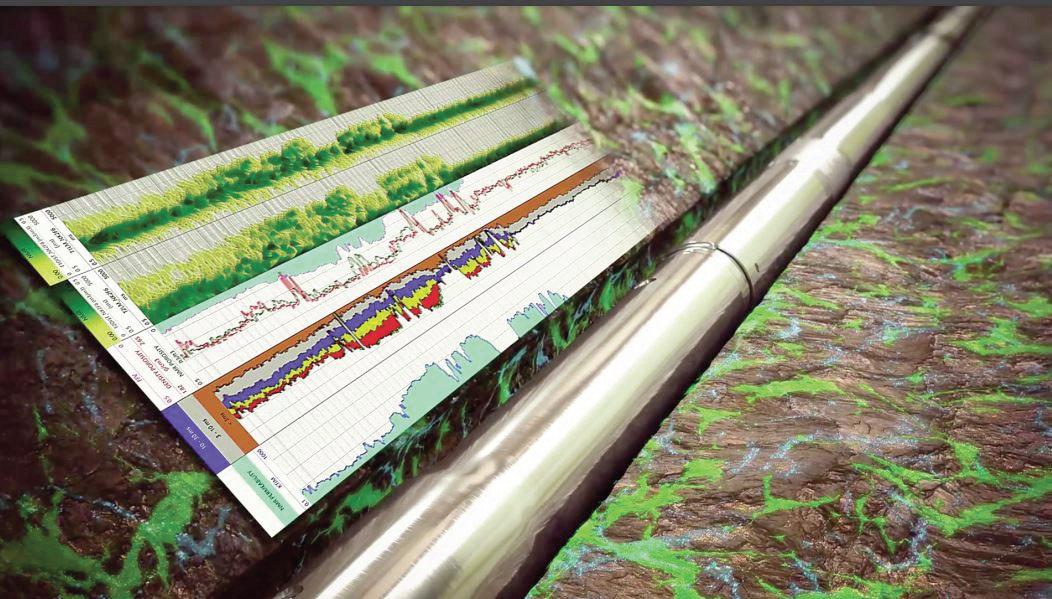
12 minute read
Mozambique
MOZAMBIQUE: LNG AND FLNG PROJECTS MAKE HEADWAY
DRIVEN BY NEW and commercial-sized discoveries and progressive policies, African natural gas consumption and production is set to become one of the fastest-growing sectors globally by 2040.
While a large share of these resources is yet to be developed, the continent holds a promising future. According to the Gas Exporting Countries Forum (GECF) report: Global Gas Outlook 2050, Africa is expected to increase its share of global marketed gas production from the current 6% to 11% by 2050.
Despite project delays initiated by COVID-19, and a temporary market oversupply that has limited capital expenditure leading to new project sanctions, several African Liquified Natural Gas (LNG) projects have been able to progress, positioning Africa as a major LNG competitor globally.
As reported in the African Energy Chamber’s (AEC) Energy Outlook 2021, African gas markets have not been insulated from COVID-19, but are less exposed than oil markets as COVID-19 primarily curtailed the transportation sector, in which gas is less used. However, the gas market was already experiencing a market glut due in part to export growth of key producers that accelerated global LNG exports and contributed to market saturation.
Africa’s natural gas consumption is expected to grow at an average of 3.3% per year – to reach approximately 195 bcm in 2025 and up to 380 bcm in 2050, according to Africa Oil & Power’s (AOP) Africa Energy Series: Africa LNG Special Report 2021.
Aligned with the rise of LNG hotspots across the continent, Mozambique is set to become a global gas exporter by 2023, and with robust and progressive gasfocused policies, the country’s gas sector is set to become one of the fastest growing globally by 2040. Mozambique has garnered significant international attention due to significant offshore gas discoveries, equating to approximately 100 tcf and corresponding to large-scale LNG developments, including Total’s Mozambique LNG and ExxonMobil’s Rovuma LNG.
According to the Africa LNG report, Mozambique is at the forefront of global gas development.
Mozambique LNG, Coral South FLNG and Rovuma LNG
Total’s Mozambique LNG project, the country’s first onshore LNG development with a target operational date of 2024, remains on track and managed to secure the largest project financing in Africa to date. CCS JV, comprising Saipem, McDermott and Chiyoda, has signed a deal with ABB to provide a comprehensive electrical system for the Mozambique LNG field. ABB’s 26-month project will culminate in a significant installed base in Mozambique for ABB and will involve collaboration across multiple ABB divisions and regions, led by ABB in Singapore. Fourteen large onshore electrical houses (ehouses) or prefabricated electrical substation buildings (PESB) –specifically designed for oil and gas applications, will be built by ABB team in Singapore and transported to the Mozambique LNG Project site.
Eni’s Coral South was the first project approved by Area 4 partners for developing gas
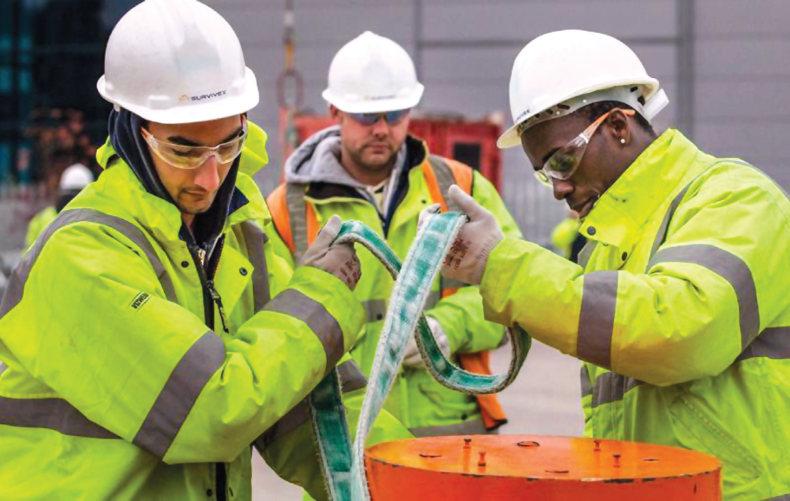
resources discovered in the Rovuma Basin, off Mozambique’s coast. In November 2020, Eni announced the lifting and installation of the last of the 13 topside modules of the Coral-Sul FLNG facility, currently under construction in South Korea. This lifting is to schedule and in line with the expected sail-away in 2021 and gas production startup in 2022. In March 2021, TechnipFMC awarded survey work to UTEC, a global surveying company and part of marine energy and infrastructure services group, Acteon, to support the development of the Coral-Sul FLNG (floating liquefied natural gas) project, the world’s first in ultra-deepwater in Mozambique.
ExxonMobil’s Rovuma LNG is facing a delay to the final investment decision (FID) as the US major is working with its partners to bring down costs. Recently, ExxonMobil and Total have been in negotiations over their massive LNG projects and the success in the talks could be particularly important for Exxon, which has to woo investors ahead of a delayed final investment decision (FID) on its US$30bn Rovuma LNG project.
A lucrative investment destination for Africa
Very recently, the President of the Republic of Mozambique, HE Filipe Jacinto Nyusi, was awarded “African Energy Person of the Year 2020,” which represents a recognition by the energy industry for multiple years of consistent hard work that has commenced multibillion dollar gas projects in Mozambique, at a time when the industry was going through a crisis globally.
Under President Nyusi’s leadership, Mozambique emerged in 2020 as the leading destination for investment in Africa. It is likely to continue being a leading destination for energy sector investments globally in the coming decade, with upwards of US$100bn to be invested across the entire energy value chain to monetise its gas resources. Investments in Mozambique’s gas industry, gasto-power and planned petrochemical developments will have a significant impact in improving not only the socioeconomic conditions in Mozambique, but are also likely to significantly impact the entire sub-region positively.
3t EnerMech’s project will see the partnership provide evidence-based analysis into the current oil and gas skills training in Mozambique. The country is focusing more of capacity building exercises.
Focus on local content development
Aligned with the rise of LNG hotspots across the continent –in which Mozambique is set to become a global gas exporter by 2023 – local content development has become a key to maximise the in-country value in the provisions of goods and services, thus revolutionising the economy. International oil and gas companies as well as the government are taking a number of initiatives to ensure skill developments among the country’s oil and gas workforce.
Total-operated Mozambique LNG plant is working actively within the Cabo Delgado community to support sustainable development through local education to develop a qualified workforce and support a burgeoning regional economy. Through a series of high-impact initiatives, including programmes that focus on primary, secondary and tertiary education, as well as technical and vocational training, the project is spearheading local capacitybuilding in-country and generating opportunities to expand community development and knowledge transfer through natural gas.
Africa Oil & Power held its Mozambique Gas & Power (MGP) 2021 day of technical workshops, aimed at enhancing local content and knowledge transfer in Mozambique’s growing energy industry. The virtual workshops targeted a range of subjects including capacity building, critical infrastructure, security and community and deal-making across the energy value chain.
In a recent development, 3t EnerMech, a strategic alliance between 3t Energy Group and EnerMech, has announced a significant contract with the UK government, which is expected to help shape future training requirements for Mozambique’s growing oil and gas workforce. The project will see the partnership provide evidencebased analysis into the current oil and gas skills training of Mozambican Technical and Vocational Education and Training (TVET) institutions and compare this to international standards to identify any existing gaps. 3t EnerMech vice-president Andrew Noble said, “A core aim of the partnership is to engage with local regions to develop local content and ultimately deliver more highly skilled global workers. Winning this significant piece of work in support of Mozambique’s local content development strategy is of major importance to the new alliance and its strategic objectives.”
“Mozambique is a significant player in the global oil and gas market and with activity continuing to ramp up, the country requires a robust, skilled workforce to support new longterm projects. This study will play a key role in future training and development programmes in the country and we look forward to delivering the data it presents.”
SENEGAL’S FIRST POWER PLANT: GAS CONVERSION
THE TECHNOLOGY GROUP Wärtsilä will convert the close to 90MW Bel-Air power plant in Dakar, Senegal to operate on liquefied natural gas (LNG). The plant, which is owned by Senelec, Senegal’s public utility company, currently operates on heavy fuel oil.
The conversion will future-proof the facility as Senegal’s long-term strategy is to lower the carbon footprint of energy production by switching to gas when a domestic supply is available. This project is part of an interim LNG-to-Power ‘bridge’ solution, and is the first ever power plant gas conversion in Senegal. The order with Wärtsilä was booked in the Q1 2021.
“Our two main aims were to improve the plant’s environmental profile and to lower the operating costs. By taking advantage of Wärtsilä’s deep experience and strong capabilities in power plant gas conversions, we can achieve both of these goals. At the same time, we are preparing the plant for the country’s future gas supply infrastructure,” said Papa Mademba Biteye, managing director of Senelec.
The Bel-Air plant’s existing six Wärtsilä 46 engines will be converted to six Wärtsilä 50DF dual-fuel engines. Wärtsilä’s current operation and maintenance agreement covering the existing engines is being renegotiated in view of the conversion. Wärtsilä’s dual-fuel engine technology allows the use of multiple fuels, providing the option to operate on gas with liquid fuels as back-up.
Besides the engine conversion, it will cover all aspects to ensure successful operations on gas. Everything from safety to operational reliability are taken into account, with control functions, mechanical auxiliary systems, as well as electrical and automation systems being upgraded as required. The project is expected to be completed before the end of 2021.

PUTTING THE PIECES TOGETHER
The complex jigsaw of logistics underpins the smooth running of Africa’s offshore industry. Martin Clark reports.
AFRICA’S OFFSHORE INDUSTRY is underpinned by logistics every step of the way.
The scale of many energy projects today is enormous, but success always comes down to the detailed organisation and execution of a multitude of smaller tasks and operations.
Sometimes those smaller tasks are themselves immense undertakings.
Heavy lift experts Jumbo Maritime recently completed supporting work on Total’s CLOV MPP project in Angola, using its giant H800 class vessels.
It meant picking up an empty 24-metre diameter carousel from Subsea 7’s Norway headquarters and then loading a substantial length of subsea umbilical and auxiliary equipment – with a combined weight of 1,255 tonnes – for onward delivery off West Africa.
And behind every big undertaking – from hauling rigs and other heavy equipment into place, to making sure subsea equipment is positioned perfectly on the ocean floor – there are thousands of firms who come together to make it happen.
Key industry players like Bollore Logistics brought all of these skills to bear during the Covid-19 crisis, flying in essential healthcare supplies where they were needed in Africa and across the globe.
It is among a multitude of big industry players supporting Africa’s oil and gas sector.
Another is Geodis, which recently renamed its industrial projects unit Geodis Project Logistics.
The move widens its oil and gas offer, and reflects growing activity levels in the renewable energy segment, as well as integrating marine logistics and its aid and relief business into an expanded logistics operation.
Luke Mace, senior vice president for Geodis Project Logistics, said it brings together many of the common challenges faced across all of these areas.
“While the logistical challenges of each sector can be very different, all have very important requirements in common – expertise in handling, attention to detail and quality of service.”
The management of all the moving parts of a fluid supply and logistics chain is, in itself, a task for specialists.
Global logistics management firm ASCO was awarded two vessel monitoring contracts in West Africa earlier this year, worth US$3.5mn.
The contracts include provision of ASCO’s vessel monitoring service for collision risk management, along with an entire field monitoring solution inclusive of design, procurement, installation, maintenance and monitoring.
The service will ensure that ship platform collisions and threats to subsea infrastructure do not go undetected, said Craig Revie, ASCO’s group energy transition manager. "Interactions between vessels and offshore structures continues to represent a major accident hazard for the energy industry, and whilst surveillance systems using radar, AIS and cameras provide a real time picture of maritime activity, these are not always being operated and monitored to their full capabilities, therefore increasing risk to assets.”
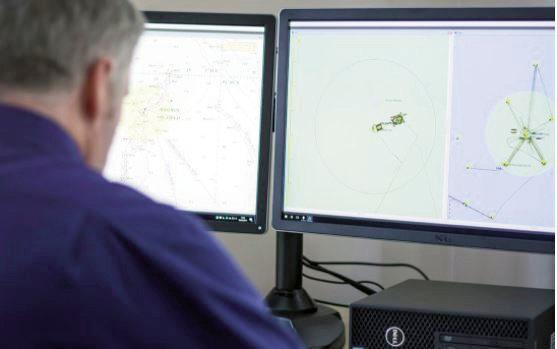
ASCO starts the year with West Africa contract wins.
READING BENEATH THE LINES
The use of geophysical data has become instrumental in decision making in Africa’s oil and gas industry. Martin Clark reports.
GEOPHYSICAL DATA REMAINS integral to the oil and gas search in Africa, and in maximising value from all production assets.
It has become an area driven by technological advances, with operators now able to view beneath the surface in ways unimaginable decades ago.
These tools helped paved the way for the development of Angola’s mighty offshore sector.
One of the biggest names in the business is Fugro, which is currently working on a number of geotechnical and environmental surveys off the coast of Angola for Eni.
The multipurpose survey vessel, the Fugro Scout –specifically designed for seabed sampling and in situ testing in water depths up to 3000 metres –is conducting a deepwater environmental survey to acquire, analyse and interpret sediment and water samples from Eni’s Agogo field development.
A second vessel, the Fugro Helmert, is helping conduct a route survey in Angola’s nearshore areas, including various environmental, geotechnical and geophysical surveys.
These will help to calculate the best installation route and optimise cable burial protection for the New Gas Consortium, a group of multinationals that includes Eni, looking to maximise the nation’s gas potential.
“Our vessels are supporting Eni in Angola and delivering a range of specialised geo-data services,” said Jaco Stemmet, Fugro’s Africa director.
“These projects are two great examples of how we unlock insights to help our clients design, build and operate their assets in Africa in a safe, sustainable and efficient manner.”
Geophysical tools can help to unlock similar projects onshore too.
French firm Sercel designs and manufactures high-tech solutions for subsurface exploration, and identifying hydrocarbons buried deep underground.
CGG GeoSoftware has also launched WellPath, an interactive 3D well path planning solution for optimal well planning in unconventional and fractured reservoirs and offshore development platforms.
WellPath is set to show the complexity of the subsurface drilling environment in 3D so that drillers can quickly plan and QC horizontal wells on highdensity, multi-lateral pads or large offshore platforms.
According to CGG, the solution is expected to enable drilling engineers to perform interactive directional well path planning while adhering to the constraints of geological targets and engineering design. Drillers can optimise plans based on fractures, facies, geobodies and reservoir attributes while avoiding hazards, legacy wells, and recent completions prevalent in certain areas, such as the Permian Basin of west Texas

The aim of the geophysical survey tools is to help pave the way for the development of the offshore sector.


